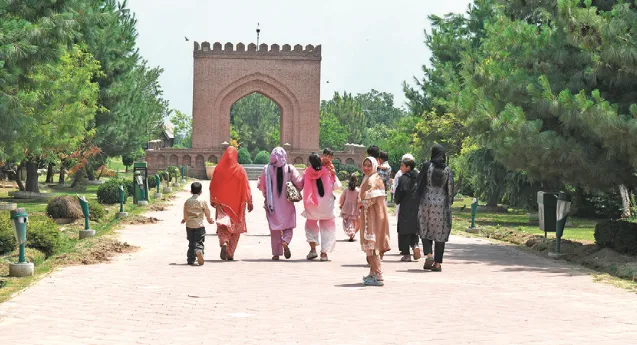Srinagar/ Pahalgam, Jun 17: After weeks of near silence across Kashmir’s iconic tourist destinations following the brutal terror attack in Baisaran, Pahalgam, the region is slowly seeing a tentative return of visitors.
Jammu and Kashmir administration’s announcement to reopen 16 offbeat destinations, the preparations for the upcoming Amarnath Yatra, and the arrival of national travel operators in Kashmir have collectively given a much-needed boost to the region’s battered tourism industry.
The April 22 terror attack left 26 tourists dead in Baisaran and triggered panic across India’s tourism circuit.
Within 48 hours, tourism operators across Kashmir reported a complete collapse of bookings, with many stating that the situation was worse than the pandemic-era cancellations.
“After the attack, we witnessed 100 percent cancellations. There was not a single inquiry for almost a week,” said Mudasir Khan, a travel agency owner in Srinagar. “Even tourists who were already in Kashmir left midway. The fear was real, and we couldn’t even convince them to stay.”
The situation worsened as diplomatic tensions escalated between India and Pakistan shortly after the attack, casting further doubts in the minds of travellers and tour operators.
In an attempt to counter the fear and revive tourist confidence, the J&K government took swift steps by announcing the reopening of 16 tourist destinations.
“Our aim is not only to diversify Kashmir’s tourism offerings but also to assure tourists that the region is secure and welcoming,” said a senior official from the Department of Tourism. “We are collaborating with various agencies to ensure safety, particularly as we gear up for the Amarnath Yatra.”
The annual Amarnath yatra, scheduled to begin later this month, is expected to bring tens of thousands of yatris to the region.
The administration is already working with Police and security agencies to ensure tight security arrangements along the yatra routes, including the Baltal and Pahalgam tracks.
Officials say the yatra could play a crucial role in regaining the trust of the broader travelling public.
“When people see lakhs of yatris moving safely through Kashmir, it will send a strong message that Kashmir is safe,” the official said.
Even though large-scale tourism is yet to pick up, small signs of revival are visible. Travel agents and hoteliers in Pahalgam, Sonamarg, Gulmarg, and Srinagar confirm a modest but noticeable increase in tourist inquiries.
“We cannot say that tourism is back on track, but it has started limping back,” said Owais Ahmad, a hotelier based in Pahalgam. “There is a long road ahead, but at least we are seeing some movement.”
Interestingly, a number of national and regional tour operators from Mumbai, Delhi, Gujarat, and Bengaluru visited Kashmir over the past week for assessment tours.
Their presence is being viewed by local stakeholders as a positive signal.
For thousands of Kashmiris whose livelihoods depend on tourism – from taxi drivers and pony handlers to artisans and guides – the past fortnight has been painful.
Many said that this was supposed to be the peak season, but it feels like winter again.
Still, there is cautious optimism.
“We have faced worse situations and always bounced back,” said Fayaz Ahmad, a shikarawalla. “This time too, Inshallah, things will improve.”
PAHALGAM’S BETAAB VALLEY REOPENS
Meanwhile, tourists and local visitors trickled back to Pahalgam as the popular Betaab Valley reopened, nearly two months after the deadly Baisaran attack.
Betaab Valley, located about 6 km from the main Pahalgam, saw long queues outside the ticket counter as eager visitors arrived to take in Kashmir’s lush scenery, the flowing Lidder tributary, and surrounding mountains.
“For two months we sat idle, but with the reopening of these spots, we are hopeful our livelihood will return,” said Ishfaq Ahmad, a tourist guide.
All the parks and sightseeing locations in Pahalgam were closed after the April 22 attack.
“We were already excited to visit, but the warm welcome we received today made it even more special,” said Ravinder Singh, a tourist from Ferozepur, Punjab. “It feels safe again.”
Ali Khan, who came with his family from Lucknow, echoed similar sentiments.
“We have visited Kashmir before, and we are thrilled to be back,” he said. “This park reopening brings life back to the valley.”
For many locals who depend on tourism, the reopening marks a turning point.
“I used to sell shawls here before everything shut down,” said Afzal Sheikh, a vendor in Betaab Valley. “Now I hope the good old days will return.”
In Pahalgam town, Poshwan Park, Club Park, and Lavender Park also reopened and were abuzz with students, families, and tourists.
“I am happy to be here again,” said Mushtaq Ahmad, who brought his family from Anantnag. “It feels like we are reclaiming something we had lost.”
Elsewhere in south Kashmir’s Anantnag district, parks and botanical gardens in Achabal, Kokernag, and Verinag also saw crowds of eager visitors.
Students, families, and tourists stood in queues, waiting to enter.
“I am relieved Verinag Garden is open again,” said a local restaurant owner. “Our businesses rely on these places. This will help us get back on our feet.”
Tourist Police personnel were deployed across major sites to ensure smooth entry and offer assistance.
Local legislator Ghulam Ahmad Mir visited Verinag Garden and greeted tourists and locals, praising their resilience and encouraging more visitors to return.
“Kashmir is open again,” he said, “We welcome everyone with open arms.”
In the Jammu region, tourist spots have reopened in Sarthal and Dhaggar in Kathua district, Devipindi, Siyad Baba, and Sula Park in Reasi, Guldanda and Jai Valley in Doda, and Pancheri in Udhampur.
As the government continues to reopen sites in phases, residents and tourism stakeholders remain hopeful that Kashmir’s travel industry will recover from the shock of the April attack.
“Tourists should not be afraid to come,” said Singh, a tourist from Punjab. “This place is still heaven on earth.”








